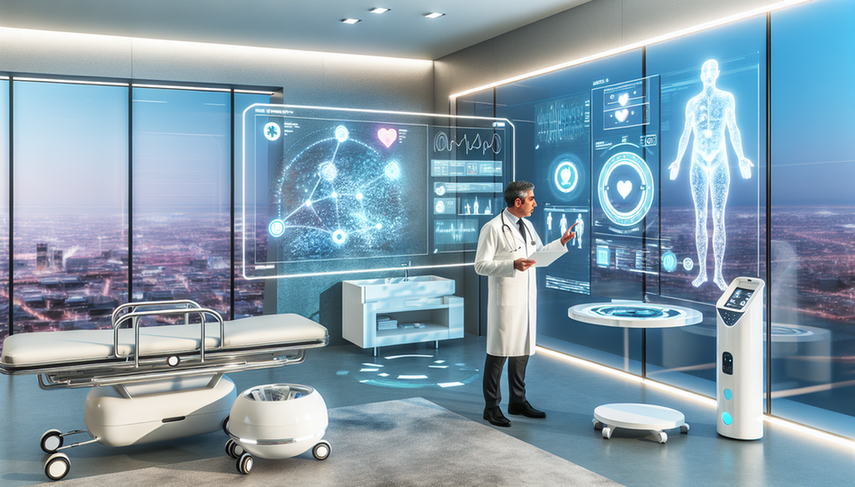Medicine 4.0: Automation and Artificial Intelligence for the Digital Doctor in Digital Health

Medicine 4.0 is revolutionizing the healthcare field by integrating automation and artificial intelligence to transform the role of the digital doctor. This advancement not only enhances efficiency in diagnosis and treatment but also redefines the interaction between physicians and patients. In this context, digital health becomes a fundamental pillar for the future of medicine.
Diving Deeper into Medicine 4.0
The implementation of automated systems and artificial intelligence in medicine is on the rise. An example of this is the computer-aided diagnosis (CAD) system for bone scans, which has demonstrated its potential in detecting metastases in patients with prostate, breast, and other types of cancer. This system, known as "BONENAVI," has shown significant accuracy, especially in prostate cancer patients, although improvements are needed to reduce false positives in other cancer types. [1]
In the field of oncology, automated segmentation of lesions in PET/CT images is crucial for assessing and quantifying disease burden in lymphoma patients. Advanced methods such as 3D convolutional neural networks have demonstrated performance comparable to inter-observer agreement, suggesting their utility in clinical practice. [2]
Digitalization is also significantly impacting surgery. According to a survey conducted by the German Society of Surgery, most surgeons view digitalization as an opportunity to enhance their practices, although they recognize the need to improve their knowledge about these technologies. Artificial intelligence, robotics, and model-based surgery are areas expected to transform daily routines in the operating room. [3]
Conclusions
Medicine 4.0 is here to stay, and its impact on digital health is undeniable. The integration of automation in medicine and intelligent systems not only improves the accuracy and efficiency of diagnostics but also redefines the role of the digital doctor. As we move forward, it is crucial for healthcare professionals to stay informed and actively participate in this transformation to ensure that these technologies are utilized in ways that benefit both physicians and patients.
References
- [1] Investigation of computer-aided diagnosis system for bone scans: a retrospective analysis in 406 patients
- [2] Comparison of 11 automated PET segmentation methods in lymphoma
- [3] Digitalization in surgery: What surgeons currently think and know about it-results of an online survey
Created 20/1/2025
